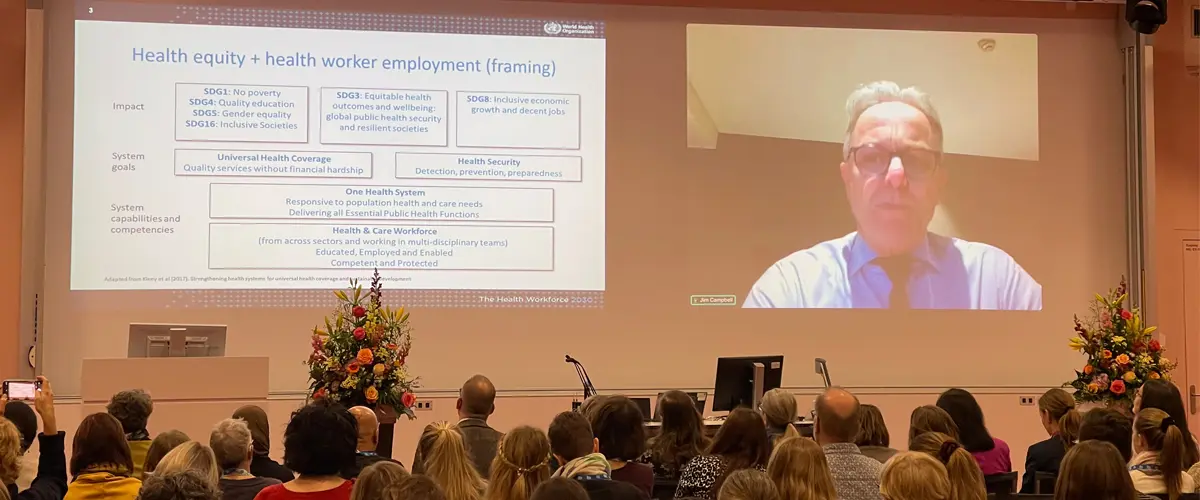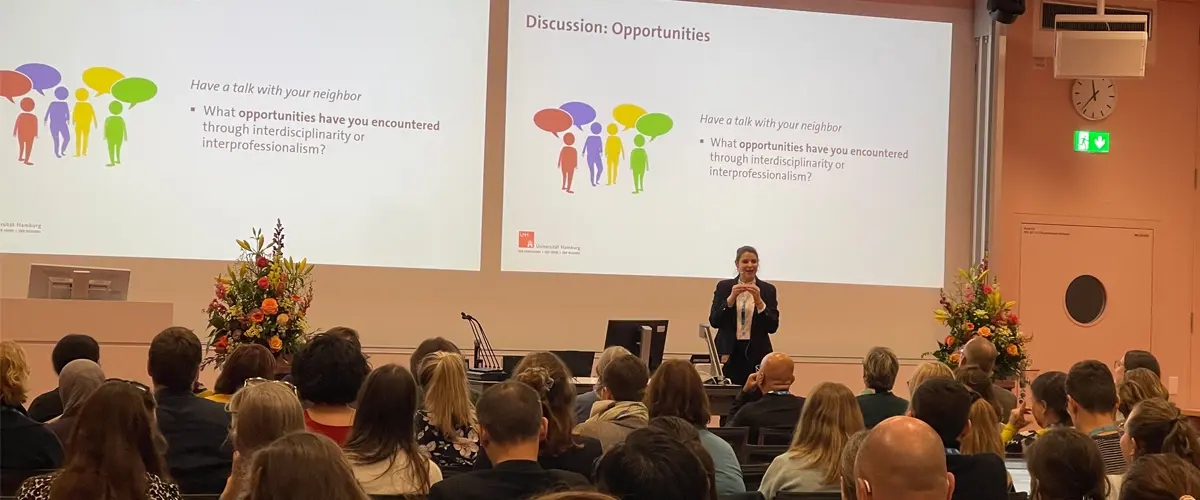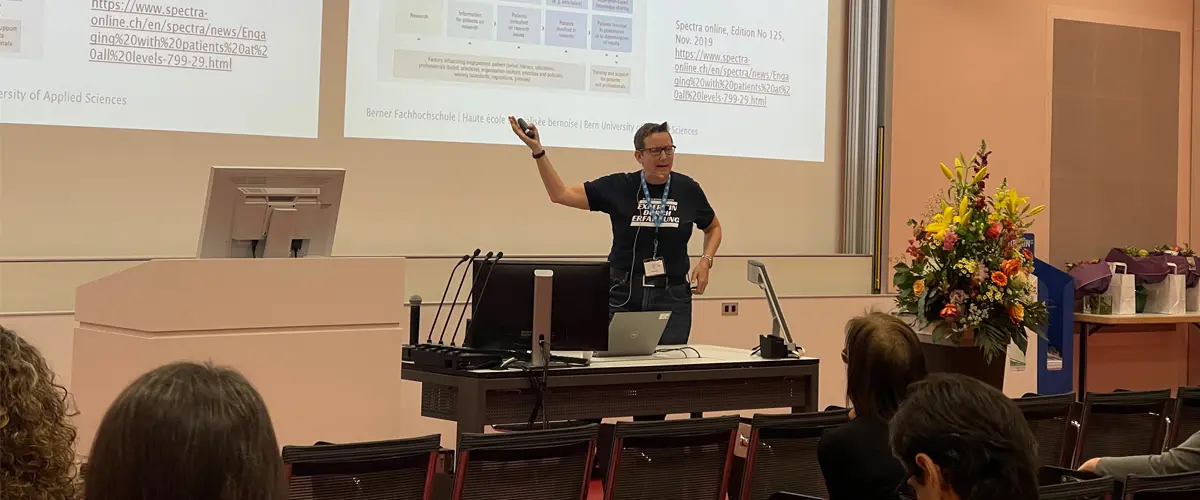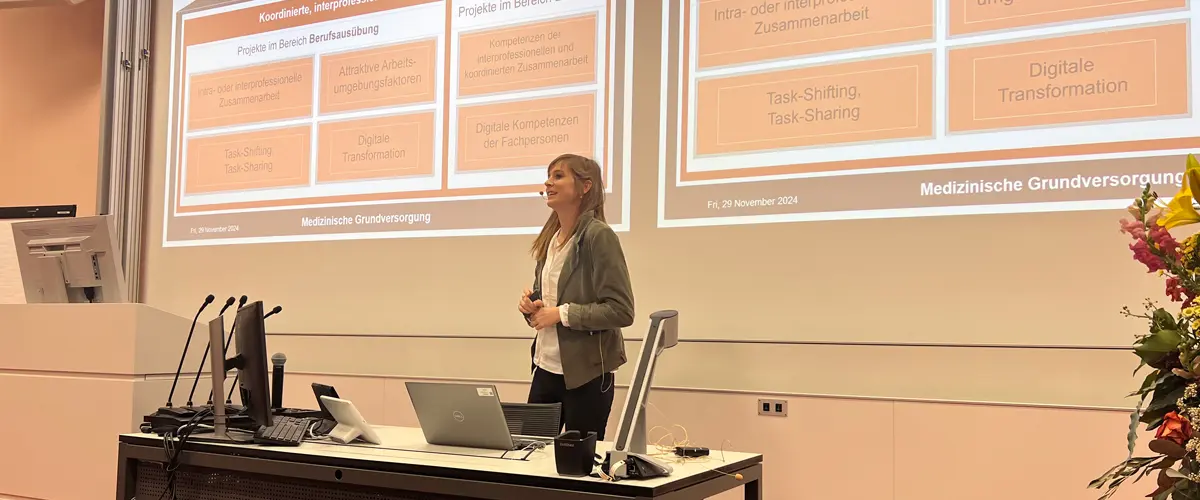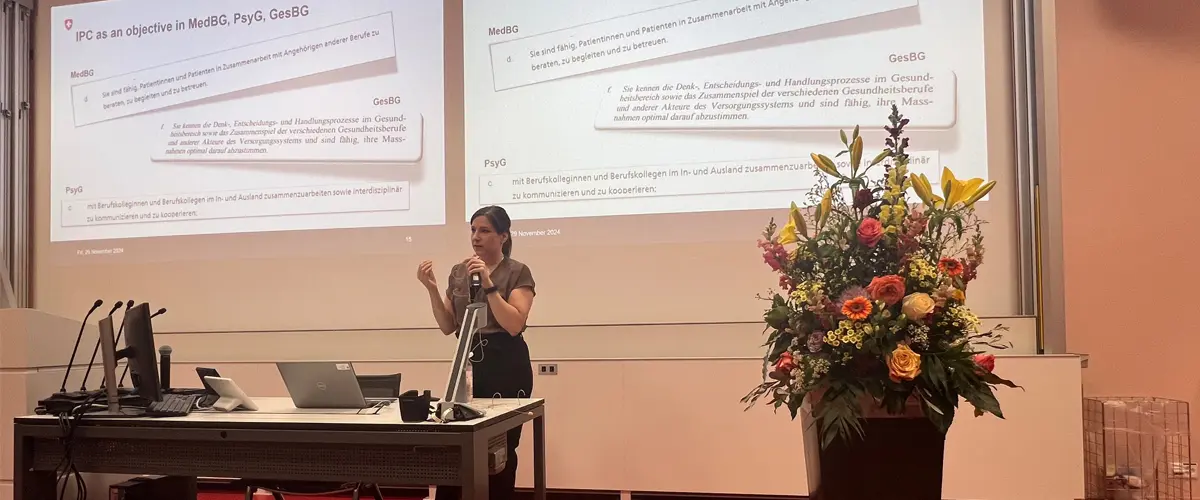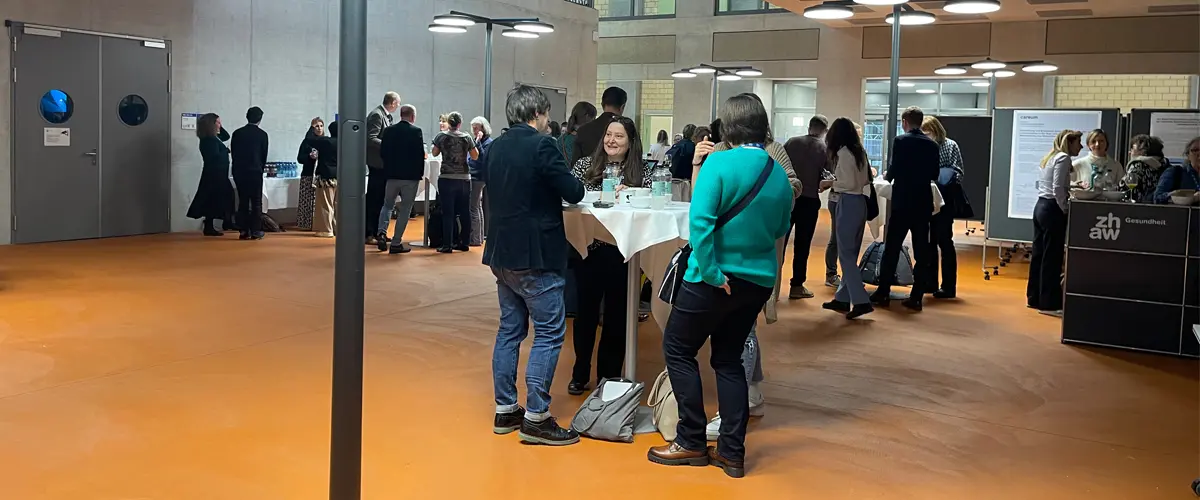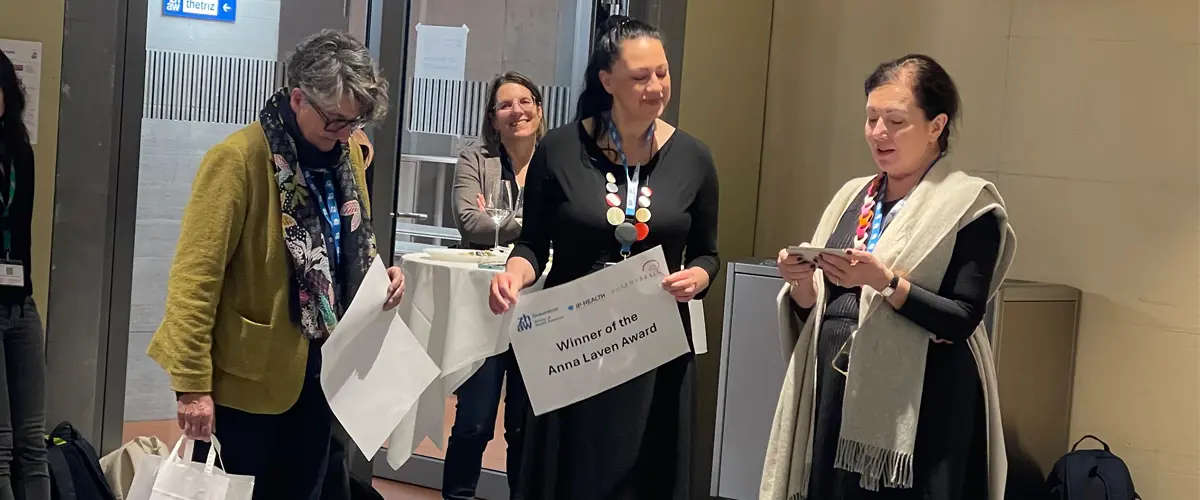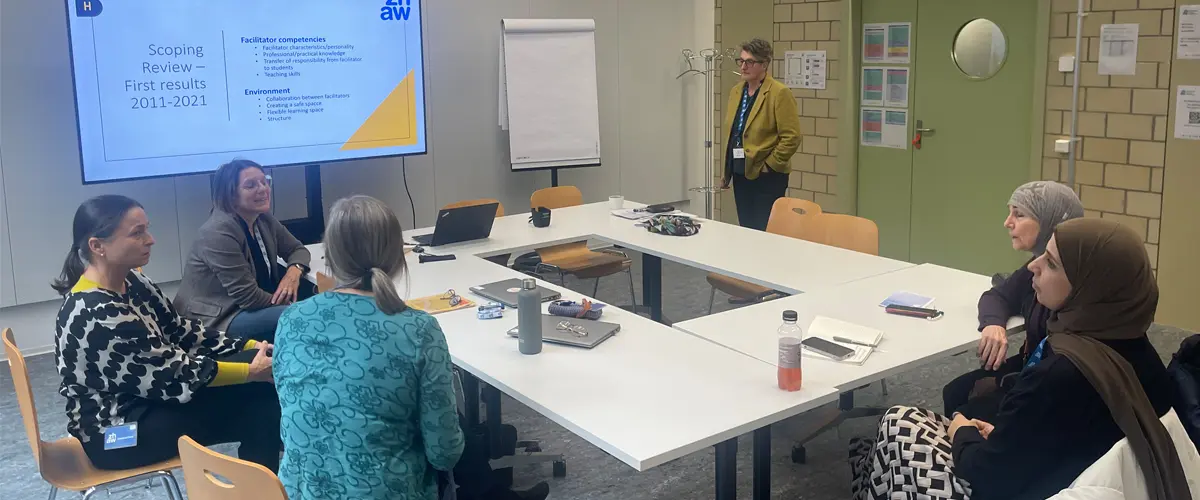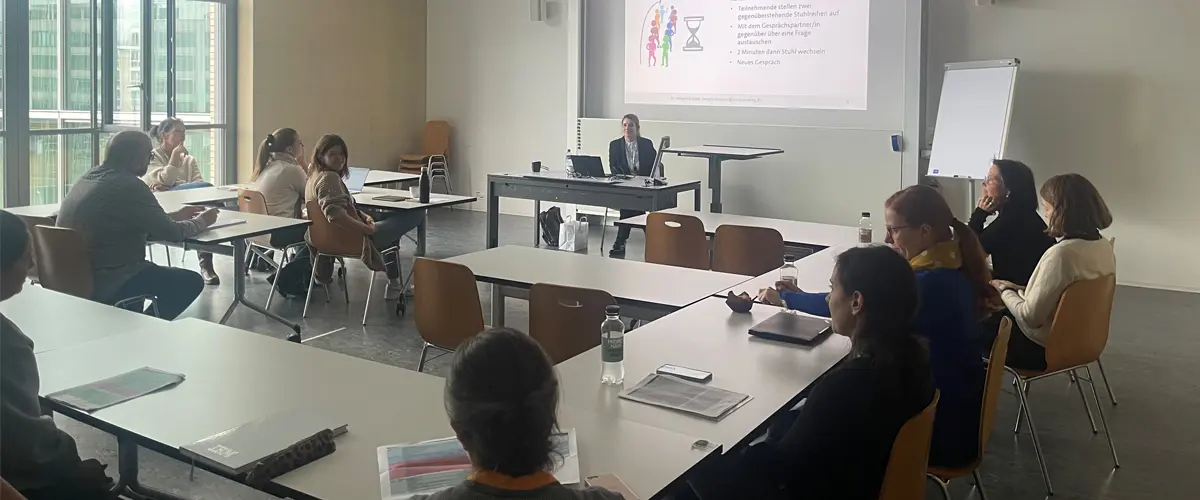360 Grad Winterthur Symposium: More interprofessionalism for better healthcare
Four keynotes, numerous short presentations and countless discussions: the «360 Grad Winterthur Symposium» 0rganized by the ZHAW Institute of Public Health brought together healthcare professionals from Switzerland and abroad to discuss interprofessional approaches to healthcare. One highlight was the presentation by Jim Campbell, Director Health Workforce, WHO.
Wars, climate change, migration and an ageing population - the global challenges of our time are also placing an increasing burden on healthcare. Interprofessional collaboration in the health and social care sector is becoming increasingly important to ensure patient safety and sustainably improve the quality of care. But how can this interprofessionalism be promoted and strengthened? What structural, educational and practice-oriented approaches are needed to improve networking between the various healthcare professions? Around 150 national and international experts from the fields of research, practice, education and politics discussed these and other questions on Thursday and Friday, November 28/29, 2024, at the «360 Grad Winterthur Symposium» organized by the Institute of Public Health at the Zurich University of Applied Sciences ZHAW. The name of the symposium also reflected the aim of the event. «We want to take a holistic look at the best practice models of integrated, collaborative and person-centred healthcare,» said Marion Huber, Head of the Interprofessional Teaching and Practice Unit at the Institute of Public Health, who organized the event together with her team.
The view of the WHO and other experts
One of the highlights of the symposium was the presentation by Jim Campbell, Director «Health Workforce» of the World Health Organization (WHO). As he was attending a conference with the Philippine government, he was unable to be there live, but was able to join in via video. In his presentation on «From data and evidence to education and practice: WHO perspectives», Campbell explained how the WHO uses evidence-based approaches to optimize educational programmes for health professionals worldwide. He emphasized the importance of competency-based and interprofessional education for healthcare professionals and the promotion of collaborative practice. Mirjam Brassler, occupational and organizational psychologist at the University of Hamburg, also highlighted the relevance of interdisciplinary collaboration. She said that, in addition to the many advantages, there are also «challenges» for team members. For example, interdisciplinary communication and conflict resolution must be trained. In her keynote speech, Chantal Britt, research associate at Bern University of Applied Sciences (BFH), made the connection to practice. Using personal experiences, the Long Covid sufferer showed that patients must be an important part of the interprofessional team. Cinzia Zeltner and Joelle Troxler from the Federal Office of Public Health FOPH then explained the role of the federal government in interprofessionalism and presented the new «Efficiency in primary healthcare» funding program.
Broad mix of topics in the practical projects
Numerous short presentations and workshops took place between the keynotes on both days. Innovative ideas and projects from the field were presented. One such project is interprofessional peer learning for occupational therapy and physiotherapy neurology students during their studies at the University Hospital Zurich. «It is important that both professions know the approaches and skills of the other and learn from each other,» said Eva Krenn, one of the two project managers. Other examples of such best-practice models include the social prescription in GP practices, the establishment of a real-world laboratory for interprofessionalism at Münster University of Applied Sciences, the «Ethics for All» teaching and learning concept at the ZHAW, interprofessional immersion at the Zurich Faculty of Medicine and the Department of Health at the ZHAW and the interprofessional training ward at the Salzburg regional hospitals, where medical and pharmacy students and nursing trainees learn with, from and about each other.
The symposium participants liked what they heard and saw. «The whole event was a great enrichment,» said one participant and another said that she enjoyed the exchange with the various healthcare professionals from research and practice. A third participant added: «It's always good to think outside the box.» Conference organizer Marion Huber is also satisfied with the event, which was held for the first time in this setting: «We succeeded in building a bridge between education, practice, research and politics in order to strengthen prevention, health and social care.»
